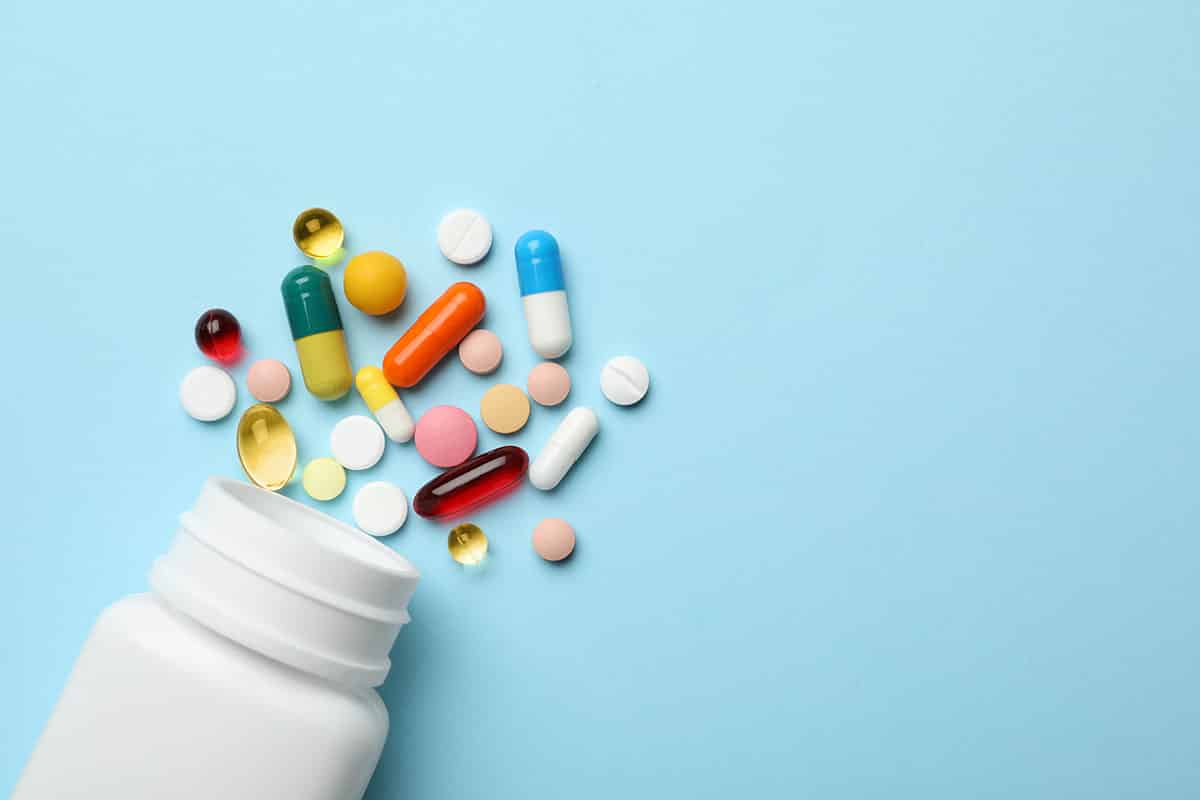Addiction is a complex and challenging issue that affects millions of people worldwide. And while traditional approaches to addiction treatment – such as therapy and support groups (e.g., 12-step) – have proven successful, the landscape of addiction treatment has evolved to embrace a more comprehensive and integrated approach. In particular, the use of medication-assisted treatment (MAT), which combines anti-addiction medications with behavioral therapy and other interventions, has gained widespread recognition and adoption in recent years.
In fact, the National Institutes of Health (NIH) and the National Institute on Drug Abuse (NIDA) performed extensive research on MAT that highlights its effectiveness in reducing drug use, decreasing overdose deaths, improving treatment retention rates, and preventing the spread of infectious diseases.
Understanding addiction, dependence, and withdrawal
Addiction and dependence are two interrelated but distinct aspects of substance use disorders. Understanding the physical and mental dimensions is crucial to addressing the symptoms and challenges associated with withdrawal.
Physical aspects of addiction & dependence
The physical aspect of addiction and dependence involves changes that occur in the body due to prolonged substance abuse. With repeated exposure to addictive substances, the brain undergoes adaptations that cause neurochemical imbalances and alter brain circuitry. These changes contribute to the development of tolerance and physical dependence.
Tolerance occurs when the body gets used to the presence of a substance and requires larger doses to achieve the same effects. This typically leads users to escalate their substance use, further increasing the risk of harmful consequences.
Physical dependence occurs when the body “depends” on the substance to function normally and leads to withdrawal symptoms when the person stops taking the substance or significantly decreases their dose. Note that dependence can occur without addiction, as addiction encompasses both physical and psychological components.
Mental aspects of addiction & dependence
The mental aspect of addiction and dependence involves the psychological and behavioral components of substance use disorders. Addiction is marked by compulsive drug-seeking and drug-taking behaviors despite negative consequences. It is a complex interplay of reward pathways, motivational systems, and cognitive processes in the brain.
The mental aspect of addiction encompasses cravings, psychological dependence, and the psychological impact of withdrawal. Cravings are intense desires or urges to use a substance, triggered by cues associated with substance use. Psychological dependence refers to the emotional reliance on a substance to cope with negative emotions, stress, or other challenges. Addiction often involves distorted thinking patterns, impaired judgment, and difficulties in controlling substance use.
Withdrawal symptoms and challenges
Withdrawal occurs when a person who is dependent on a substance discontinues or significantly reduces their intake, leading to a range of physical and psychological symptoms.
Some common withdrawal symptoms and challenges associated with substance withdrawal include:
Physical Symptoms:
- Nausea, vomiting, and gastrointestinal disturbances
- Muscle aches, tremors, and restlessness
- Sweating, chills, and fluctuations in body temperature
- Fatigue, lethargy, and sleep disturbances
- Headaches and dizziness
Psychological Symptoms:
- Anxiety, irritability, and agitation
- Depression, mood swings, and emotional instability
- Difficulty concentrating and impaired cognitive function
- Intense cravings and strong urges to use the substance
- Increased sensitivity to stress and emotional triggers

Withdrawal symptoms can be highly distressing and may lead to relapse if not properly managed. Medical supervision, support from healthcare professionals, and appropriate medications can help alleviate these symptoms and ensure a safer and more comfortable withdrawal process.
How anti-addiction medications assist in addiction treatment
Anti-addiction medications play a crucial role in supporting addiction treatment by addressing the physiological and neurochemical aspects of addiction. They work in conjunction with counseling and behavioral therapy to enhance the chances of successful recovery.
Here are some ways anti-addiction medications assist in addiction treatment:
- Reducing cravings and withdrawal symptoms
One of the primary benefits of anti-addiction medications is their ability to reduce cravings and alleviate withdrawal symptoms. These medications target specific receptors in the brain associated with the addictive substance, either by mimicking its effects or blocking its action. By doing so, they help stabilize brain chemistry and reduce the intense urges to use drugs or alcohol. This can significantly enhance an individual’s ability to resist relapse and maintain abstinence.
- Increasing treatment retention rates
Addiction is a chronic condition that often requires long-term treatment and support. However, many individuals struggle to stay engaged in treatment programs due to the overwhelming cravings and distressing withdrawal symptoms. Anti-addiction medications can increase treatment retention rates by providing individuals with a greater sense of control over their addiction. By alleviating the physical discomfort associated with withdrawal, these medications enhance a person’s motivation to continue with therapy and other supportive interventions.
- Improving overall treatment outcomes
The integration of anti-addiction medications into comprehensive treatment plans has shown promising results in improving overall treatment outcomes. Research suggests that medication-assisted treatment (MAT) can lead to reduced drug use, decreased risk of relapse, and improved social functioning. By addressing the physiological aspects of addiction, these medications create a more solid foundation for individuals to engage in therapy, learn coping strategies, and make positive lifestyle changes.
- Reducing the risk of relapse
Relapse is a common challenge in addiction recovery. Anti-addiction medications can help mitigate the risk of relapse by reducing cravings and withdrawal symptoms, which are major triggers for resuming substance use. By providing stability and support during the early stages of recovery, these medications give individuals a better chance of maintaining abstinence and transitioning into a healthier, drug-free life.
What medications may be used to treat addiction?
There are a number of medications approved by regulatory authorities for the treatment of addiction to specific substances.
Here are some examples of medications commonly used to treat addiction:
Opioid addiction medications:
- Buprenorphine: A partial opioid agonist that activates the same receptors as opioids but with a milder effect, helping to alleviate withdrawal symptoms and cravings.
- Naltrexone: An opioid antagonist that blocks the effects of opioids, reducing the rewarding effects and preventing relapse.
Alcohol addiction medications:
- Disulfiram: Creates unpleasant physical reactions (such as nausea and flushing) when alcohol is consumed, acting as a deterrent for individuals with alcohol use disorder.
- Acamprosate: Helps stabilize the brain’s balance of chemicals disrupted by chronic alcohol use, reducing cravings and promoting abstinence.
- Naltrexone: Also used for alcohol addiction, it reduces the rewarding effects of alcohol and helps prevent relapse.
While there are no approved medications designed specifically for the treatment of addiction to certain classes of drugs such as sedatives (like benzodiazepines) and stimulants (like methamphetamine), there are MAT interventions that can help.
For example, a medical professional may prescribe a longer-acting substitute and slowly taper down the dose to ease unpleasant symptoms, keeping the patient stable and allowing them to participate in their treatment program. Other medications, such as anti-depressants, non-addicting sleep aids, etc. may also be prescribed to manage short-term physical and mental issues.
Ultimately, the selection of medications depends on individual circumstances, the specific substance of abuse, and the assessment(s) of healthcare professionals. Different medications may be used in combination and tailored to meet the unique needs of each person in their recovery journey. Additionally, ongoing medical supervision and regular monitoring are essential to ensure the safe and effective use of any medications.
Learn more about medication-assisted treatment (MAT) with Enterhealth
If you or someone you know is struggling with addiction, Enterhealth can help.
We offer medically supervised detox, which may include the use of MAT and other evidence-based interventions as part of a comprehensive treatment program that’s personalized to each patient’s unique needs.
To get started, call us at 800.388.4601 or use our contact form today.




